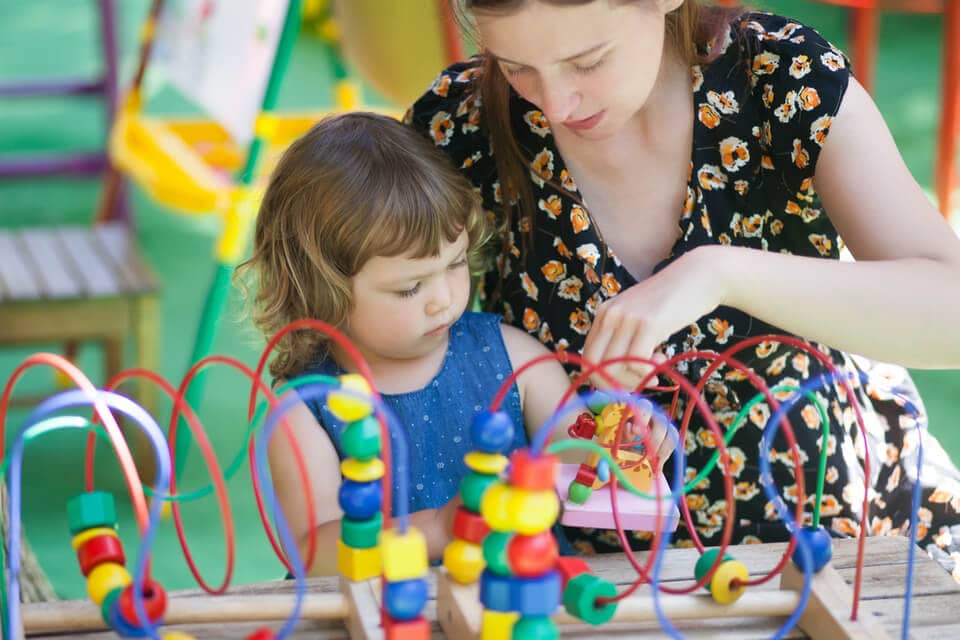“Connections between generations are essential for the mental health and stability of a nation,” said Margaret Mead, famous American Cultural Anthropologist. Intergenerational Programs provides children and older adults opportunities to connect, learn, and enjoy meaningful experiences and relationships; and has been proven to develop community trust.
Seniors who participate in intergenerational programs gain a sense of fulfillment as they help children learn through reading, storytelling, homework help, shared life experiences, and traditional crafts. They report an increased sense of “joyful freedom.” Seniors who miss spending time with their children and grandchildren, or perhaps have some regrets from parenthood, experience a fresh start in an adult-child relationship. Seniors who participate in these intergenerational programs generally report less loneliness and depression, better physical health, and a higher degree of life satisfaction. Seniors who are homebound often report how these intergenerational programs brighten up their day and give them something to continuously look forward to.
In turn, the child participants gain a sense of empathy, understanding, and respect. Too often, children get too much contact through computers and texting their peers, and not enough one-on-one, personal time with mature adults. Psychology tells us that children need four to six caring adults involved in their lives to fully develop emotionally and socially. Through these intergenerational programs, children also develop a sense of where they come from, and therefore a better sense of self. They also better understand what it means to have roots, a history, and a sense of continuity and perspective.
Research shows that in general, children who spend time with elders develop higher self-esteem, better emotional and social skills, and even earn better grades in school. Children are introduced to new activities and ideas by sharing in an older adult’s interests, skills, and hobbies. By getting to know “real” seniors, children can look beyond the ageist stereotypes they are often confronted with on TV and in movies. Children who participate in these intergenerational programs gain a better understanding of aging, why someone might live in a nursing home, and why someone might not be able to walk and must use a wheelchair. Intergenerational relationships can help socialize children and teach them empathy and character. Similarly, children can be an endless source of joy for elders, share affection and play, and help with many simple tasks.
Overall, intergenerational programs are a key component to social connectivity and stability. As author Susan V. Bosak said, “If we can improve the standing of older adults in society, and nurture what they can bring through intergenerational connections, then we can achieve a better community with a better quality of life for all ages.” At SALMON, we are continuously bringing these benefits home. The SALMON Center for Early Education at Natick provides children the opportunity to connect with the seniors residing at SALMON’s adjacent Whitney Place Assisted Living and Beaumont Rehabilitation & Skilled Nursing Center on the Natick campus. Originally conceived in 1966 as an early education program for children of SALMON employees, these centers regularly bring the two generations together for planned and spontaneous activities, providing a sense of community that benefits both the children and our Residents.
Director of the SALMON Center for Early Education at Natick reflected on the curriculum several years ago, “I don’t like to think of it as a ‘program.’ It is so much more. Bonds are established between generations. Our activities include only about four to five children at a time. They are paired with Residents and work on gross motor skills or crafts side-by-side. One of our newest approaches is Residents coming to the pre-k classroom and reading to the children. We encourage our seniors to visit at any time to see the children – there doesn’t have to be a scheduled activity … just come to visit. This is really a unique community.”
It has been evident through years of intergenerational programming on our Natick campus that whenever the youngest and the oldest generations come together, the results benefit both groups in measurable and insurmountable ways.



